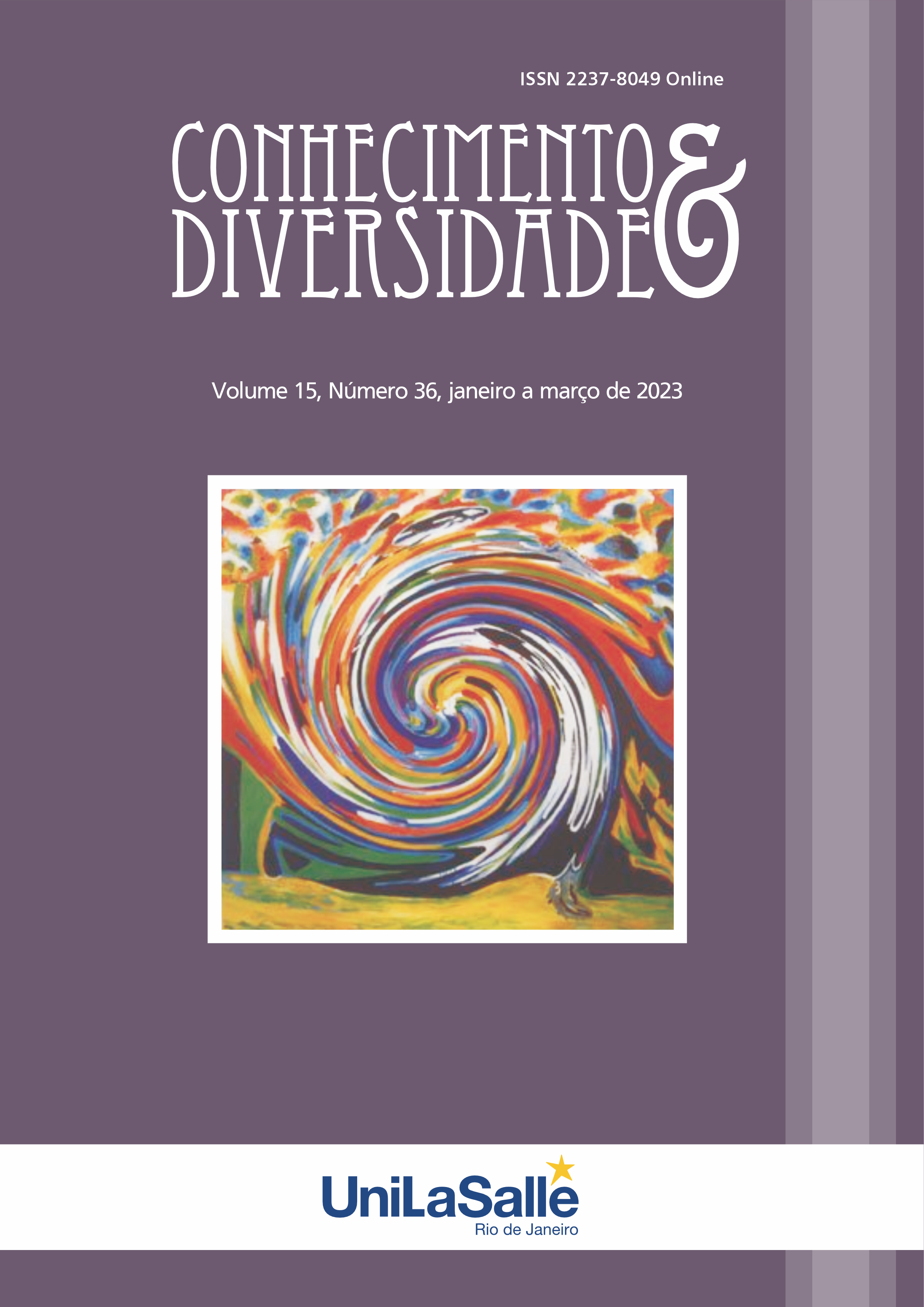THE STUDY OF COGNITIVE PSYCHOLOGY IN CONJUNCTION WITH ARTIFICIAL INTELLIGENCE
DOI:
https://doi.org/10.18316/rcd.v15i36.10788Palabras clave:
Artificial intelligence, Cognitive psychology, Children's mental health, Deep learning, Convolutional neural network.Resumen
The major purpose of this research is to provide a thorough review and analysis of the interplay between artificial intelligence (AI) and psychology. I talk about state-of-the-art computer programs that are able to simulate human cognition and behavior (such as Human-Computer Interfaces, models of the mind, and data mining programs). Applications may be broken down into several sub-categories and have many different aspects. While developing artificially intelligent robots has been and continues to be the major goal of AI research and development, the widespread acceptance and usage of AI systems have resulted in a much broader transfer of technology. The article begins with a brief history of cognitive psychology, a discussion of its fundamental ideas and models, and a look at the ways in which the study is connected to artificial intelligence (AI). The second part of this article takes a closer look at the difficulties encountered by the field of human-computer interaction, along with its aims, duties, applications, and underlying psychological theories. Multiple scientific, pragmatic, and technical obstacles (complexity problems, disturbing coefficients, etc.) stand in the way of extending or overcoming these limits. We also demonstrate the potential use of mental modeling in the areas of diagnosis, manipulation, and education support in this work. Predictions may be made with the use of data mining, knowledge discovery, or expert systems (for instance, the prognoses of children with mental problems based on their settings). The article reviews the missing features and offers an overview of the coefficients used in the system. Finally, we discuss the application of expert systems and life simulation (applied mental model) in virtual reality to benefit autistic people and their loved ones.
Citas
Cassimatis, N. L. (2006). A Cognitive Substrate for Achieving Human-Level
Intelligence. AI Magazine, 27(2), 45–56.
Chance, F. S., Aimone, J. B., Musuvathy, S. S., Smith, M. R., Vineyard, C. M., & Wang, F.
(2020). Crossing the Cleft: Communication Challenges Between Neuroscience and
Artificial Intelligence. Frontiers in Computational Neuroscience, 14, 1–9.
https://doi.org/10.3389/fncom.2020.00039
Delecraz, S., Eltarr, L., Becuwe, M., Bouxin, H., Boutin, N., & Oullier, O. (2022).
Responsible Artificial Intelligence in Human Resources Technology: An innovative
inclusive and fair by design matching algorithm for job recruitment purposes.
Journal of Responsible Technology, 11, 100041.
Foundations of Classical Artificial Intelligence and Cognitive Science. (2012).
Understanding Intelligence. https://doi.org/10.7551/mitpress/6979.003.0004
Goertzel, B., & Pennachin, C. (n.d.). The Novamente Artificial Intelligence
Engine. Artificial General Intelligence, 63–129. https://doi.org/10.1007/978-3-540-
-4_3
KAYSER, D. A. N. I. E. L. (2013). Artificial Intelligence and cognitive science. Applied
Artificial Intelligence, 5(2), 153–162. https://doi.org/10.1080/08839519108927922
Lieto, A. (2021). Cognitive science and artificial intelligence. Cognitive Design for
Artificial Minds, 1–19. https://doi.org/10.4324/9781315460536-1
Miller, T. (2019). Explanation in artificial intelligence: Insights from the social
sciences. Artificial intelligence, 267, 1-38.
Murphy, J. (2018). Artificial Intelligence, Rationality, and the World Wide Web. IEEE
Intelligent Systems, 33(1), 98–103. https://doi.org/10.1109/MIS.2018.012001557
Pennachin, C., & Goertzel, B. (n.d.). Contemporary approaches to Artificial
General Intelligence. Artificial General Intelligence, 1–30. https://doi.org/10.1007/978-
-540-68677-4_1
Rakover, S. S. (2022). How Can Behavior Be Understood if Its Explanation is Not
Comprehended? Does Cognitive Psychology Reach Its Explanatory Limit? Journal of
Mind & Behavior, 43(3), 255–268.
Red’ko, V. G. (n.d.). The natural way to Artificial Intelligence. Artificial General
Intelligence, 327–351. https://doi.org/10.1007/978-3-540-68677-4_10
Smith, E. E. (1985). Cognitive psychology. Artificial Intelligence, 25(3), 247–253.
https://doi.org/10.1016/0004-3702(85)90073-6
Thagard, P. (2007). Theory and experiment in Cognitive Science. Artificial
Intelligence, 171(18), 1104–1106. https://doi.org/10.1016/j.artint.2007.10.006
Voss, P. (n.d.). Essentials of general intelligence: The direct path to artificial general
intelligence. Artificial General Intelligence, 131–157. https://doi.org/10.1007/978-3-
-68677-4_4
Zhang, X., Wang, R., Sharma, A., & Deverajan, G. G. (2021). Artificial intelligence in
cognitive psychology—Influence of literature based on artificial intelligence on
children's mental disorders. Aggression and Violent Behavior, 101590.
Zhao J, Wu M, Zhou L, Wang X and Jia J (2022) Cognitive psychology-based artificial
intelligence review. Front. Neurosci. 16:1024316. doi: 10.3389/fnins.2022.1024316
Descargas
Publicado
Número
Sección
Licencia
Derechos de autor 2023 Conhecimento & Diversidade

Esta obra está bajo una licencia internacional Creative Commons Atribución 4.0.
Tal como recomienda el Public Knowledge Project, RCD adopta para sus artículos una licencia CREATIVE COMMONS: Attribution CC BY 4.0
Esta licencia permite que otros distribuyan, remezclen, adapten y desarrollen su obra, incluso con fines comerciales, siempre que le atribuyan a usted el mérito de la creación original.
Esta es la licencia más adecuada que se ofrece.
Recomendado para la máxima difusión y utilización de los materiales bajo licencia.



